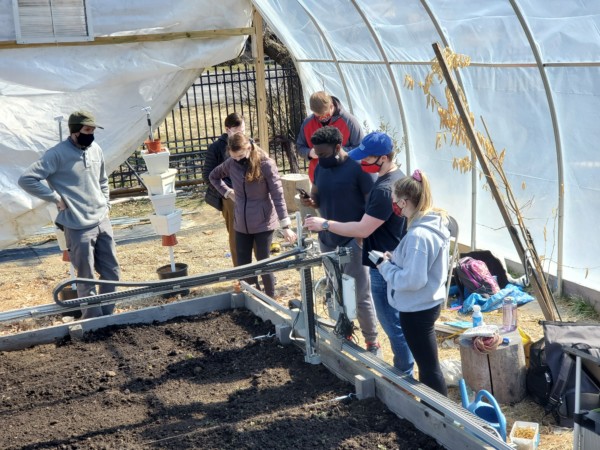Access to fresh produce is difficult in many low-income neighborhoods, and regular gardens result in high costs and short-term sustainability. These low-income neighborhoods don’t have affordable access to supermarkets, making food insecurity prevalent, which is why this issue must be addressed.
35 students from the Ohio State University College of Engineering, along with several faculty members, will participate in the Environmental Competition by EPICS in IEEE, in partnership with the UEF, to design an environmentally friendly solution. They created Project Urban Gardens for Sustainable Education and Agriculture to build a climate-resilient community garden that offers fresh produce to the community, as well as STEM outreach opportunities for neighboring schools.
The project has three components that revolve around the design and implementation of the garden, and the creation of education modules to help educate students in this low-income community. The three components aim to support their partner organizations which are, The Charles Madison Nabrit Memorial Garden and South Side Family Farms, both focused on improving food scarcity. The team plans to utilize solar electricity generation, as well as rainwater, to minimize money and time spent.
EPICS in IEEE has granted them $10,000 to start designing and building this environmentally friendly and substantial garden. The team, as well as their partner organizations, hope to establish this site as an efficient, cost-effective, sustainable growing place.

